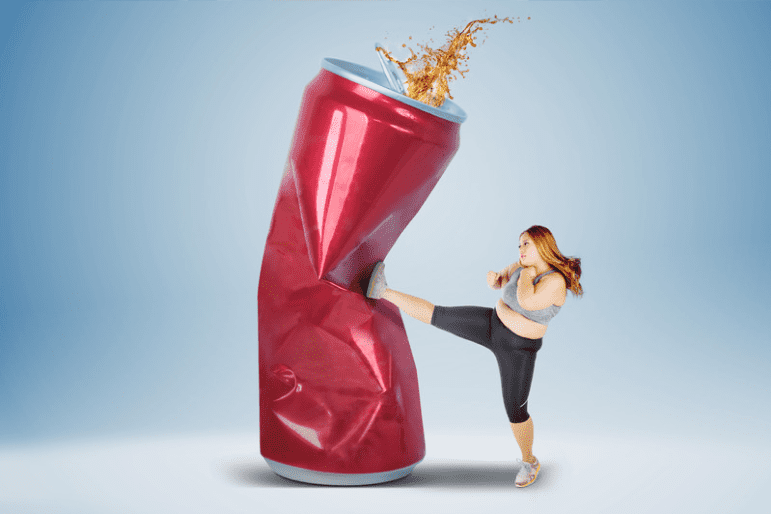Many people are addicted to Diet Coke. It is marketed as a healthy alternative to regular soda, but it still contains high fructose corn syrup. This article will explain how to detox off diet coke and how to avoid gaining weight from the caffeine withdrawal symptoms.
Step 1) Slowly reduce your intake of Diet Coke over time. For example, start by only drinking half of what you used to drink each day for one week. Then next week, cut back further on your daily amount until you are fully weaned off the Diet Coke that you once loved so much!
Step 2) Read labels! You may be surprised at just how many products contain aspartame – I have compiled a list below.
Aspartame can cause insulin spikes which can cause weight gain.
Let’s say you drink one 20 ounce diet coke every day, that is equivalent to drinking 730 cans of Diet Coke per year (factoring in weekends). If you reduce your intake by 500 calories each day, you can lose up to 21 pounds of fat PER YEAR!
Aspartame has been linked to various diseases
The most common way people get aspartame poisoning is just by consuming beverages with it.
Step 3) When you feel like having something sweet, choose an organic fruit or 100% fruit juice instead.
Step 4) Exercise! I know that sounds difficult but trust me when I say this: it will be worth it! The more active you are the less likely you are to binge on junk food. If you need help, there is a section below on how to get motivated and fit!
Step 5) Remove the temptation of Diet Coke from your house. You will be less likely to drink it if it’s not there and this will make weaning off much easier!
Step 6)Now that you have weaned yourself off of diet soda, refer back to all of the steps in this article when you want something sweet or crave caffeine.
List of products containing aspartame:
– Aspartame is generally found in protein bars, protein powders, yogurts, cereal bars, gum and even toothpaste
– Drinks that usually have aspartame are iced tea mix drinks with added flavoring (such as Country Time, Crystal Light), flavored water (such as Propel or Vitamin Water), lemonade (from drink mixes like Kool-Aid) and sports drinks (like Gatorade)
– Tabletop sweeteners such as Equal or Nutrasweet
– Some medicines like chewable multivitamins may contain aspartame, but the amounts are extremely small in comparison to soda and sweetened products.
Conclusion:
Aspartame is probably safe in the small amounts that the average person eats.
However, people who are more sensitive to phenylalanine (like those with phenylketonuria) may be affected by higher doses of aspartame. Also, for pregnant women, avoiding foods containing aspartame until after giving birth may help reduce their risk of having a child with certain birth defects.
People often worry about whether or not diet soda will affect their weight gain. The simple answer is “it shouldn’t”. For some reason, people think artificial sweeteners, including sucralose and others like it made from sugar alcohols (such as sorbitol or xylitol), do not provide enough sweetness to satisfy sugar cravings. However, a study performed by the American Diabetes Association showed that artificial sweeteners actually reduce cravings for carbohydrates and sugar. People frequently worry about cancer risks associated with artificial sweeteners because these chemicals are used in many products to make them taste sweeter without increasing calories or carbohydrate content. Scientists have conducted studies on animals be giving large amounts of these sweeteners over time, but did not find any evidence linking cancer to this increase in sweetness.
The truth is it is much better for you to consume something that has zero calories than it is to eat full-calorie food that contains ingredients your body does not need nor require! Therefore, always be mindful of the types of foods you are eating! The lesser amount of processed sugars consumed, the better!
– Hui Zhuang, Tamara Battle. “Artificial Sweeteners.” Food and Nutrition Sciences 4.7 (2013): 407-412. Web. 8 May 2015.
– N/A (no author listed). “Aspartame” . American Cancer Society , 1 Jan. 2015, http://www.cancer.org/healthy/avoidingtoxins/choosingcarcinogentoo/artificial-sweeteners-to-know-about


Leave a Reply